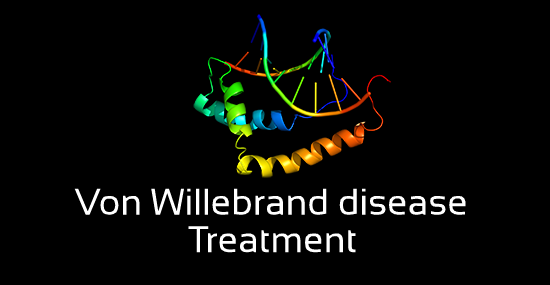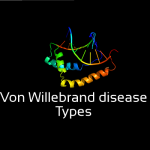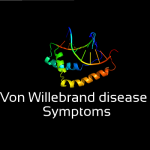Von Willebrand Disease Treatment
What are the treatments for von willebrand disease?
Von Willebrand disease cannot be cured; However, treatment can help to keep the condition under control, with prompt treatment patients with VWD can live a normal life as long as they avoid heavy physical exercises, as physical exercises carry some risk of injury. Treatment of Von Willebrand disease (VWD) is based on the type of VWD and the severity of symptoms.
The aim of therapy is to correct the acquired clotting problem. This is done by raising the levels of VWF (von Willebrand factor) and factor VIII (another blood protein).
Most cases of VWD are mild, so you may need treatment only if you have planned or abnormal conditions, such as minor surgical procedures, tooth extractions, or after an accident.
If your condition does require treatment, there are several options and medicaments available.
DDAVP® (Desmopressin acetate) Injection
This medicine is nothing but a structurally modified synthetic analog of vasopressin (a natural hormone) that works by increasing the levels of factor VIII and stimulating the body to release stored VWF into the bloodstream.
Side effects may include:
- Injection site reactions, such as pain, swelling, warmth or redness at the injection site
- Facial flushing, when the face, ears, and neck become markedly red
- Headache
- Changes in blood pressure
In most cases, DDAVP® is given to patients as an infusion (intravenous injection); However, it can also be given subcutaneously (injected under the skin).
Stimate® (Desmopressin acetate) Nasal Spray 1.5 mg/ml
Stimate® Nasal Spray is a high concentration nasal spray used to treat von Willebrand disease, diabetes insipidus, bedwetting, and hemophilia A, it contains 1.5 mg/ml of Desmopressin acetate in a liquid solution at a pH of 5.0.
Pluses:
Unlike injections, It can be used easily without the need of help.
Stimate usage is recommended for people with mild or moderate Type 1 VWD.
Common side effects:
- Facial flushing
- Headache
Note that Desmopressin nasal spray is fabricated in two forms:
- Low concentrate
- High concentrate
Low concentrate nasal spray is used to treat:
- Diabetes insipidus
- Bed wetting diseases
High concentrate nasal spray is aimed for the treatment of von Willebrand disease.
Factor replacement therapies – Factor Concentrates
What is factor replacement therapy?
Factor replacement therapies are medicaments given to replace the missing VWF in patients with VWD.
There are two kinds of replacement therapy:
Factor concentrates containing VWF are the treatment of choice for von Willebrand disease because they are treated to inactivate or kill any viruses that may be present in blood plasma. Proper heat treatment reduces the potential risk of viral infections, such as HIV, hepatitis C, etc.
Cryoprecipitate (cryo), which is a blood product prepared from plasma that contains VWF, factor VIII, factor XIII, fibronectin and fibrinogen.
Both Factor Concentrates are derived from fresh plasma and are given by intravenous (IV) infusion.
Humate-P®
Humate-P® is an Antihemophilic Factor/von Willebrand Factor Complex (Human) used for the treatment of all three main types of VWD. It is the only VWF concentrate approved in the United States for the treatment of von Willebrand disease.
Humate-P is effective for most if not all bleeding episodes in all types of von Willebrand disease.
Usage:
- Humate-P is given by injection into a vein (intravenously). Home infusion therapy.
Antifibrinolytics (Local clotting agents)
Typical local clotting agents or antifibrinolytics are usually given as an injection or Per os (peroral administration). Available forms of antifibrinolytics include: tablets, capsules, mouthwash or elixir.
Role:
They help stabilize and strengthen clots to prevent them from bursting (anti burst action), and to prevent thrombosis from occurring in the first place. thus they can reduce the risk of post-thrombotic disorders, such as brain insults, or heart attacks, etc.
Usage:
Antifibrinolytics can be used to stop bleeding in many circumstances and especially to stop gastrointestinal (GI) bleeding, or bleeding from mouth and nose. Moreover, antifibrinolytics are commonly used to control heavy menstrual bleeding.
Oral contraceptive pills (Birth control pills)
OCP (Birth control pills, or oral contraceptives) are often used in the treatment of VWD, as they can increase the plasma concentration of VWF by affecting the endocrine system.
Birth control pills can help decrease the amount of prostaglandins that produce muscle contractions, and can be used to strengthen the immune system and to lower high blood pressure (hypertension). However, Birth control pills are contraindicated in women with hypotension or thrombolytic diseases, as they increase the risk of clotting. Oral contraceptives are very useful for women with HMB syndrome (heavy menstrual bleeding syndrome).
Oral contraceptives should be used with caution in patients with hypotension
Oral contraceptive pills should only be used under medical supervision for the treatment of von Willebrand disease.
Read more:
What is von willebrand disease?
What are the different types of von willebrand disease?
What are the symptoms of von willebrand disease?
References
Verified by: Dr.Diab (November 4, 2017)
Citation: Dr.Diab. (November 4, 2017). What are the treatments for von willebrand disease. Medcoi Journal of Medicine, 13(2). urn:medcoi:article2518.














There are no comments yet
Or use one of these social networks